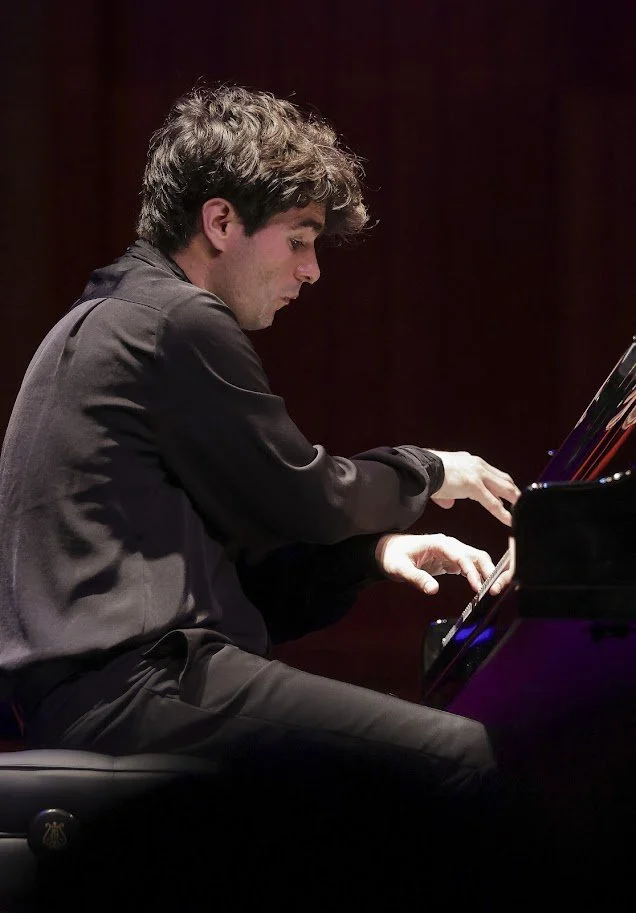Van Cliburn Semifinals: Sham, Cecino
For the Semifinals and Finals, the competition made the move from the TCU campus to Bass Performance Hall in downtown Fort Worth. (Photos by Ralph Lauer and Brandon Wade)
—Wayne Lee Gay
May 28 (evening): Late Russian romanticism provided an interesting theme for Hong Kong pianist Aristo Sham, 29, as he opened the semifinal round of the 2025 Cliburn Competition. The three movements of J.S. Bach's Partita in E for solo violin (though not originally Russian or romantic) take on a heavy Russian accent in Rachmaninoff's piano transcription. It’s thick with added notes and a few Rachmaninoff harmonic touches—but though this version was created primarily as a showoff piece for his own concert appearances, Rachmaninoff admirably preserved the unique baroque energy of the original—just with a lot more notes. And Sham certainly underlined his own virtuosity and artistic versatility, with razor-sharp passagework in the Prelude, lyrical clarity in the Gavotte, and a rich, sonorous voicing in the Gigue.
A very different feeling and skill-set emerged in Sham's performance of Scriabin's Sonata No. 10 from 1913, the composer's final essay in sonata form, with a definite push into modernism. Here, Sham played up the lyrical elements of a work characterized by short phrases, a gentle version of atonality, and trills and tremolos suggesting (according to the composer) insect noises.
Rachmaninoff's ten Etudes-Tableaux of 1917 contain some of his most technically complex works for solo piano; several of the movements in the set could contend for the designation of the most difficult short work in the entire piano repertoire. Sham impressively met the technical and emotional challenges of all, flawlessly delivering the hurricanes of notes, the melodic beauties, and the sense of tragedy expressed in a set written in the midst of the Russian Revolution.
============
Two massive multi-movement sonatas—Schumann's First and Prokofiev's Seventh—dominated the recital by Italian Elia Cecino, 23. While the Schumann is a work not often encountered on the concert stage, it contains numerous contrasts of mood, including a song-like "Aria" and a Finale characterized by the sense of momentous forward motion that was the special province of Schumann.
Cecino had opened his program with Tchaikovsky's Nocturne in F, demonstrating a lyrical touch as well as insight into a composer who is not so often associated with solo piano music.
He followed the Schumann sonata with a work by Russian composer Sofia Gubaidulina, who died not quite two months ago at her home in Germany. Gubaidulina was renowned for her fusing of Western and Eastern musical traditions, and her Toccata-troncata ("Truncated Toccata") calls for an unusual suspension and release technique—which Cecino handled expertly. From there, he moved without pause into Prokofiev's Seventh Sonata, maintaining momentum through the notoriously sustained Andante caloroso and into the explosive Precipitato finale.





